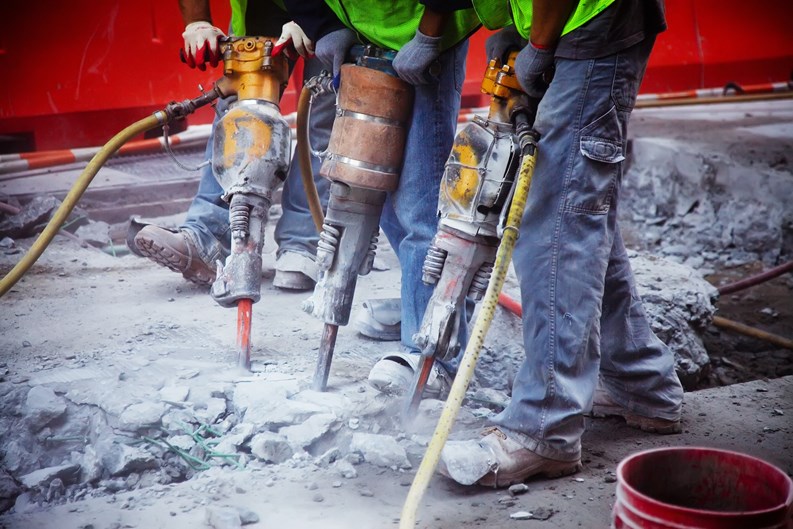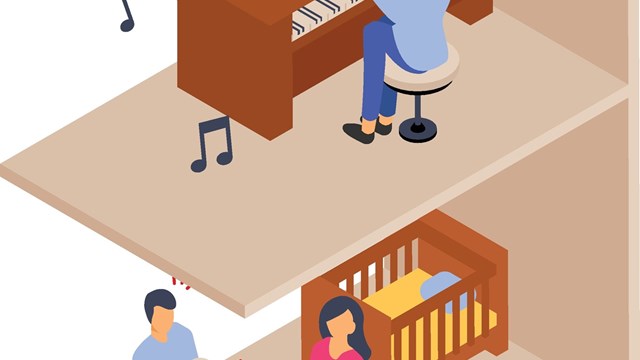In a city like New York, no one—including co-op and condo owners—is immune from the sounds of noisy construction work. With such things as loud jackhammers and buzzing saws going on, it's enough to drive anyone mad. Whether the construction is taking place at or near your property, it's a guarantee that someone is going to complain about the ruckus. But there are things you can do to resolve or minimize the problem while preserving your sanity at the same time.
The Polite Approach
If and when there are complaints, the common tact is to contact the people causing the noise and ask them to keep it down if possible.
“We normally contact the owner of the apartment under construction, the supervising architect and pay a visit to the contractor,” notes Jay Cohen, vice president and director of operations at A. Michael Tyler Realty Corp., a property management and brokerage firm in New York City. “We’ll send a nice letter off to them saying we’re having problems and ask them to curtail the noise because they’re causing discomfort to other residents and disturbing the quiet and peaceful enjoyment of the building—as specified in the proprietary lease or bylaws of the building.”
Advance Notice Helps
Often a polite letter or call will suffice. But according to Cohen, keeping the affected residents in the loop is probably the best way to avoid complaints. “From the time that we receive the alteration application,” he says, “there’s a review process that could take weeks and weeks if it’s a large project. But normally you’d let the residents in the immediate area know about 2-3 weeks before construction starts.”
Sometimes advance warning can't necessarily prevent loud construction noises from reverberating through the halls at all hours of the day. That’s why Cohen also suggests limiting the hours that crews can work in the building. “Normal working hours are from 8 to 4,” he says, “but we don’t allow any noisy work until 10 a.m. and they have to be packed up and out of there by 4.”
Yet Cohen acknowledges that it’s really difficult to stop noise from happening. He recalls one experience in which someone at a building was ripping up the floors and the person below was getting all the noise. “This building was built 100 years ago so there was no insulation or soundproofing,” he says. “There’s nothing you can do about it. We’ll ask them to please get the demo work done between certain hours, we’ll notify residents that there will be noise at these times between these dates. People tend to accept the fact that people want to renovate their apartments, and they might want to do it themselves one day and they’ll want the same courtesy.”
One solution is to distribute a schedule of the ongoing work to the residents so they'll know the dates and times to prepare for it. Cohen also suggests setting a time limit on how long work can go on for. “There’s also a start and end date for renovations,” he says. “We’ll issue fines if renovations exceed the time limit, which on a major renovation would be three months. Minor renovations tend to be limited to two weeks.”
It's a Give and Take
In any construction project, delays are inevitable. But no one wants a project to be a multi-year odyssey of hammer and chainsaw noises. “We don’t want to stop people’s renovations,” Cohen says, “but they have to understand that there’s a time limit and they have to follow it. We understand that there’s delays and that’s why I think three months is adequate. Maybe they can’t get a part or the contractor got sick, something happens. Sometimes the rules are stretched in extenuating circumstances, but not often.”
Keep in mind that whenever there is noisy work in or around a building, someone will likely complain when it gets to be too much. But by being polite, open and accommodating toward everyone involved—including the construction crews and the residents—could keep the number of complaints to a minimum.
Editor's Note: According to the city's website, New York City mandates that construction work does not occur before 7 a.m. and after 6 p.m. Mondays to Fridays, or anytime on Saturdays and Sundays without a permit. To file a complaint, visit this page.
John Zurz is a staff writer for The
Cooperator.







Leave a Comment